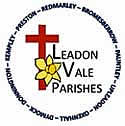 St Mary's Church, Dymock
St Mary's Church, Dymock
| Admin | |||
| . | Home | Contents | |
| H&S Policy | People Safety | Grave Yard | |
The Church & The World
Faith & Care
Faith & Care
Things Past
People & Features
People & Features
Benefice Profile
Rural Location

Our Benefice is in the extreme northwest of the diocese and was created in December 2000 by merging the adjacent teams of Redmarley and Dymock. We are in the deanery of Severn Vale, which was itself created in 2009 by merging the old deaneries of Forest North and Gloucester North. The Benefice is completely rural, in an area of outstanding natural beauty, and borders the dioceses of Worcester and Hereford. (Return to top)
Nearby Town Centres

The Gloucestershire market town of Newent is 4 miles away and the Herefordshire market town of Ledbury is 6 miles away. There is a bus service from Dymock to all these destinations.
The Benefice

Each church has its own Parochial Church Council (PCC) that deals with matters local to that church, but there is a single Benefice Council with representatives from all the parishes and ministers that oversees matters common to the whole Benefice, with the aid of a voluntary Benefice Administrator.
There are 4 church schools, all now Academies, with all of whom we have good relations. Our Ministry Team regularly leads school assemblies and other activities with the help of an independent organization called 'Sportily'.
Various groups are active in the villages with many non-church groups meeting in the village halls attended by church members including: Tennis, Cricket, Gardening; and there's a 9 hole golf course in Dymock, plus the churches support a Mothers Union, Woman's Institute, etc and various fellowship groups.
We used to have a good relationship with the independent chapel in Dymock, sharing occasional worship and some outreach including youth work, but that stopped with the adoption by the C of E of its current understanding of same-sex relationships. However, a number of our member on an individual basis still attend a fortnightly 'Shared Lunch' there followed by study.
The approximate population of the benefice is 2,600 and the church electoral rolls total 317.
Dymock Parish

There is a 'Children's Corner' available at every service with toys and activities overseen by parents, a 'Sunday School' for young children called 'Sparks' that meets in church for informal teaching and crafts during the Service on the third Sunday of each month, and a group called 'Roots' for teenagers that meets every other week, alternately in Dymock and Redmarley churches, led by Sportily with help from some of our own members.
We have regular social events including a tradition of concerts in church given by both local and visiting professional performers.
Dymock has 2 special 'claims to fame':
i) We're in an area of wild daffodils that were harvested and sent especially to the London Hospitals. That trade has long since ceased, but the daffodils are still worth a visit in the spring. For the 6 weeks of that season, we provide tea and cakes in the church for the many visitors who still come to view, which is a major source of our income.
ii) Just before the First World War, the Dymock area was home to several eminent poets (known as 'The Dymock Poets') and there's a permanent exhibition to them at the back of the church. The church is open every day from 9am to dusk.
(Return to top)